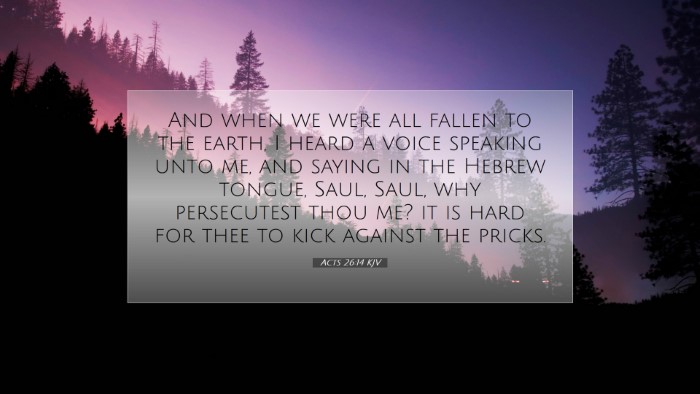Old Testament
Genesis Exodus Leviticus Numbers Deuteronomy Joshua Judges Ruth 1 Samuel 2 Samuel 1 Kings 2 Kings 1 Chronicles 2 Chronicles Ezra Nehemiah Esther Job Psalms Proverbs Ecclesiastes Song of Solomon Isaiah Jeremiah Lamentations Ezekiel Daniel Hosea Joel Amos Obadiah Jonah Micah Nahum Habakkuk Zephaniah Haggai Zechariah MalachiVerse
Acts 26:1 Acts 26:2 Acts 26:3 Acts 26:4 Acts 26:5 Acts 26:6 Acts 26:7 Acts 26:8 Acts 26:9 Acts 26:10 Acts 26:11 Acts 26:12 Acts 26:13 Acts 26:14 Acts 26:15 Acts 26:16 Acts 26:17 Acts 26:18 Acts 26:19 Acts 26:20 Acts 26:21 Acts 26:22 Acts 26:23 Acts 26:24 Acts 26:25 Acts 26:26 Acts 26:27 Acts 26:28 Acts 26:29 Acts 26:30 Acts 26:31 Acts 26:32

